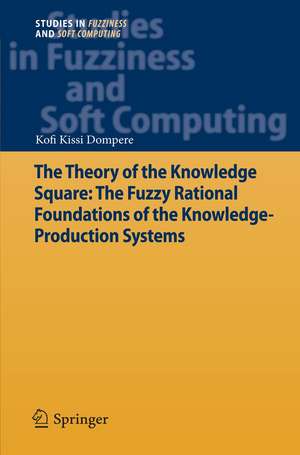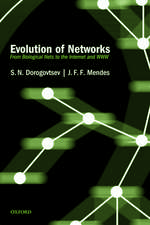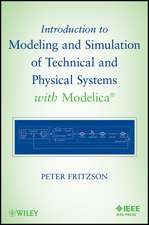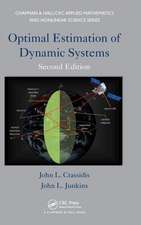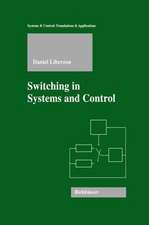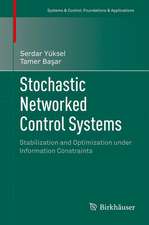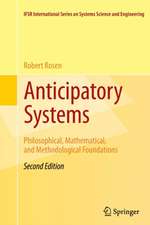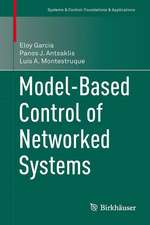The Theory of the Knowledge Square: The Fuzzy Rational Foundations of the Knowledge-Production Systems: Studies in Fuzziness and Soft Computing, cartea 289
Autor Kofi Kissi Dompereen Limba Engleză Paperback – 20 sep 2014
| Toate formatele și edițiile | Preț | Express |
|---|---|---|
| Paperback (1) | 590.58 lei 38-44 zile | |
| Springer Berlin, Heidelberg – 20 sep 2014 | 590.58 lei 38-44 zile | |
| Hardback (1) | 601.91 lei 38-44 zile | |
| Springer Berlin, Heidelberg – 28 aug 2012 | 601.91 lei 38-44 zile |
Din seria Studies in Fuzziness and Soft Computing
- 20%
 Preț: 999.85 lei
Preț: 999.85 lei - 20%
 Preț: 653.06 lei
Preț: 653.06 lei - 20%
 Preț: 872.98 lei
Preț: 872.98 lei - 20%
 Preț: 930.57 lei
Preț: 930.57 lei - 20%
 Preț: 1051.00 lei
Preț: 1051.00 lei - 20%
 Preț: 992.44 lei
Preț: 992.44 lei - 20%
 Preț: 655.85 lei
Preț: 655.85 lei - 20%
 Preț: 1001.86 lei
Preț: 1001.86 lei - 18%
 Preț: 954.14 lei
Preț: 954.14 lei - 20%
 Preț: 330.10 lei
Preț: 330.10 lei - 20%
 Preț: 333.04 lei
Preț: 333.04 lei - 20%
 Preț: 997.56 lei
Preț: 997.56 lei -
 Preț: 391.61 lei
Preț: 391.61 lei - 20%
 Preț: 647.79 lei
Preț: 647.79 lei - 20%
 Preț: 986.01 lei
Preț: 986.01 lei - 18%
 Preț: 958.56 lei
Preț: 958.56 lei - 20%
 Preț: 996.40 lei
Preț: 996.40 lei - 20%
 Preț: 999.35 lei
Preț: 999.35 lei - 15%
 Preț: 646.43 lei
Preț: 646.43 lei - 20%
 Preț: 651.57 lei
Preț: 651.57 lei - 20%
 Preț: 997.89 lei
Preț: 997.89 lei - 15%
 Preț: 641.03 lei
Preț: 641.03 lei - 20%
 Preț: 1009.74 lei
Preț: 1009.74 lei - 20%
 Preț: 992.62 lei
Preț: 992.62 lei -
 Preț: 388.72 lei
Preț: 388.72 lei - 18%
 Preț: 1223.43 lei
Preț: 1223.43 lei - 20%
 Preț: 651.42 lei
Preț: 651.42 lei - 18%
 Preț: 951.59 lei
Preț: 951.59 lei - 18%
 Preț: 948.61 lei
Preț: 948.61 lei
Preț: 590.58 lei
Preț vechi: 738.23 lei
-20% Nou
Puncte Express: 886
Preț estimativ în valută:
113.04€ • 122.83$ • 95.02£
113.04€ • 122.83$ • 95.02£
Carte tipărită la comandă
Livrare economică 17-23 aprilie
Preluare comenzi: 021 569.72.76
Specificații
ISBN-13: 9783642445774
ISBN-10: 3642445772
Pagini: 244
Ilustrații: XXXII, 212 p.
Dimensiuni: 155 x 235 x 13 mm
Greutate: 0.35 kg
Ediția:2013
Editura: Springer Berlin, Heidelberg
Colecția Springer
Seria Studies in Fuzziness and Soft Computing
Locul publicării:Berlin, Heidelberg, Germany
ISBN-10: 3642445772
Pagini: 244
Ilustrații: XXXII, 212 p.
Dimensiuni: 155 x 235 x 13 mm
Greutate: 0.35 kg
Ediția:2013
Editura: Springer Berlin, Heidelberg
Colecția Springer
Seria Studies in Fuzziness and Soft Computing
Locul publicării:Berlin, Heidelberg, Germany
Public țintă
ResearchCuprins
The Theory of the Knowledge Square and the Information Structure: The Points of Entry and Departure.- The Theory of the Knowledge Square and the Concept of the Possibility Space.- The Theory of the Knowledge Square, and the Concepts of Probability and Probability Space.- The Knowledge Square and the Concepts of Actual and the Space of the Epistemic Actual.- Paradigms of Thought in the Fuzzy and Classical Epistemic Systems under Knowledge Production.- Fuzziness, Science, the Knowledge Square and the Problem of Exact Science.- Ontology, Epistemology, Explication and Exactness in Mathematics and Sciences.- Knowledge and Science in the Theory of the Knowledge Square.
Textul de pe ultima copertă
The monograph is about a meta-theory of knowledge-production process and the logical pathway that connects the epistemic possibility to the epistemic reality. It examines the general conditions of paradigms for information processing and isolates the classical and fuzzy paradigms for comparative analysis.
The book is written for professionals, researchers and students working in philosophy of science, decision-choice theories, economies, sciences, computer science, engineering and related subjects. It is further aimed at research institutions and libraries. The subject matter belongs to extensive research and development taking place on fuzzy phenomena and the debate between the fuzzy paradigm and the classical paradigm relative to informatics, synergetic science and complexity theory. The book will have a global appeal and across disciplines. Its strength, besides the contents, is the special effort that is undertaken to make it relevant and accessible to different areas of sciences and knowledge production.
The book is written for professionals, researchers and students working in philosophy of science, decision-choice theories, economies, sciences, computer science, engineering and related subjects. It is further aimed at research institutions and libraries. The subject matter belongs to extensive research and development taking place on fuzzy phenomena and the debate between the fuzzy paradigm and the classical paradigm relative to informatics, synergetic science and complexity theory. The book will have a global appeal and across disciplines. Its strength, besides the contents, is the special effort that is undertaken to make it relevant and accessible to different areas of sciences and knowledge production.
Caracteristici
The aim of this monograph is to develop a meta-theory of knowledge production that presents a general epistemic framework for knowing and is based on fuzzy logic The book aim to make the fuzzy paradigm with its laws of thought, logical system and mathematics clearly understood by users of classical paradigm Written by a leading expert in the field
